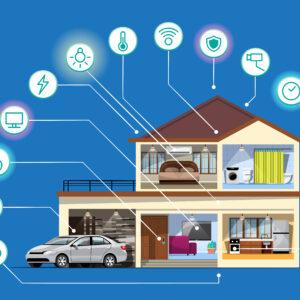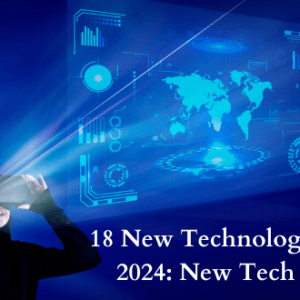Introduction
In today’s rapidly evolving digital landscape, businesses must stay ahead of the curve to remain competitive. The integration of cutting-edge technologies is no longer a luxury but a necessity for survival and growth. In this comprehensive guide, we’ll explore five transformative technologies that are reshaping industries and revolutionizing businesses’ digital futures. From artificial intelligence to blockchain, these innovations promise to drive efficiency, enhance customer experiences, and unlock new opportunities for growth.
5 Technologies Revolutionizing Businesses’ Digital Futures
Artificial Intelligence (AI)
Artificial intelligence continues to dominate headlines with its transformative potential across various industries. From chatbots and virtual assistants to predictive analytics and machine learning algorithms, AI is revolutionizing how businesses operate. With the latest updates in technology, AI-powered solutions can automate repetitive tasks, analyze vast amounts of data, and uncover actionable insights in real-time. This enables businesses to make data-driven decisions, streamline processes, and deliver personalized experiences to customers.
Internet of Things (IoT)
The Internet of Things (IoT) is reshaping the way businesses interact with the physical world. By connecting devices, sensors, and machines to the internet, IoT enables seamless communication and data exchange. From smart homes and wearable devices to industrial machinery and supply chain management systems, IoT is transforming every aspect of business operations. With new information technology updates, businesses can leverage IoT to optimize processes, improve efficiency, and create innovative products and services.
Blockchain Technology
Blockchain technology has emerged as a game-changer in industries such as finance, healthcare, and supply chain management. By providing a secure, decentralized ledger for recording transactions, blockchain offers transparency, immutability, and trust. With the latest technology updates, businesses can harness blockchain for various applications, including digital payments, smart contracts, and supply chain tracking. This not only reduces costs and eliminates intermediaries but also enhances security and enables new business models.
Augmented Reality (AR) and Virtual Reality (VR)
Augmented reality and virtual reality are transforming how businesses engage with customers and employees. AR overlays digital content onto the physical world, enhancing real-world experiences with interactive elements. VR, on the other hand, creates immersive, simulated environments that users can explore and interact with. With advancements in AR and VR technology, businesses can create compelling marketing campaigns, immersive training programs, and virtual product experiences. This enhances customer engagement, improves learning outcomes, and drives innovation across industries.
Edge Computing
Edge computing is revolutionizing how businesses process and analyze data in real-time. By moving computing resources closer to the data source, edge computing reduces latency, enhances performance, and enables faster decision-making. With the rise of technology, businesses can leverage edge computing for applications such as IoT, AI, and autonomous vehicles. This allows for real-time data analysis, faster response times, and greater resilience in mission-critical systems.
Conclusion
In conclusion, the latest updates in technology are reshaping businesses’ digital futures and driving innovation across industries. By embracing transformative technologies such as AI, IoT, blockchain, AR/VR, and edge computing, businesses can gain a competitive edge, deliver superior customer experiences, and unlock new opportunities for growth. As technology continues to evolve, staying abreast of the latest developments and trends is essential for businesses looking to thrive in the digital age. So, to get the latest tech news visit our site All Day Technology.







